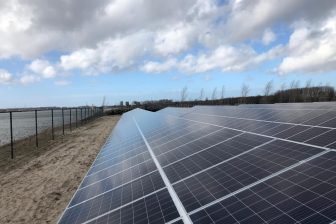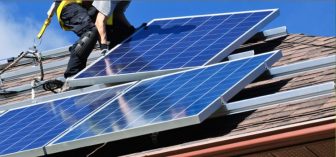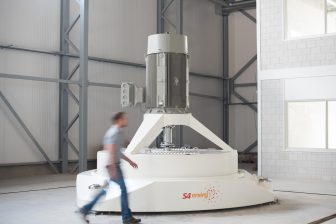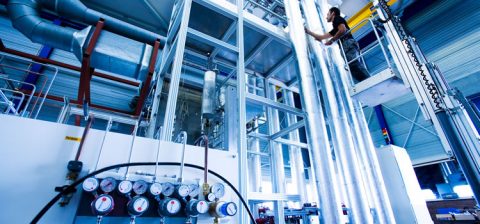
Ecofys: ‘Veel meer energiebesparing in EU mogelijk’
1 februari 2017 – De EU kan veel meer energiebesparing realiseren dan de Europese Commissie denkt. Met een betere analyse van kosten en baten zijn meer maatregelen rendabel. Dat concludeert Ecofys in een analyse van de meest recente beleidsdoelen van de Europese Commissie. ‘An energy efficiency target level of up to 40% could be cost-effective.’
Ecofys schreef het rapport samen met (en in opdracht van) The Coalition of Energy Savings, een samenwerkingsverband van meer dan 550 instellingen en bedrijven die de Europese Unie aansporen 40 procent energiebesparing in 2030 te realiseren.
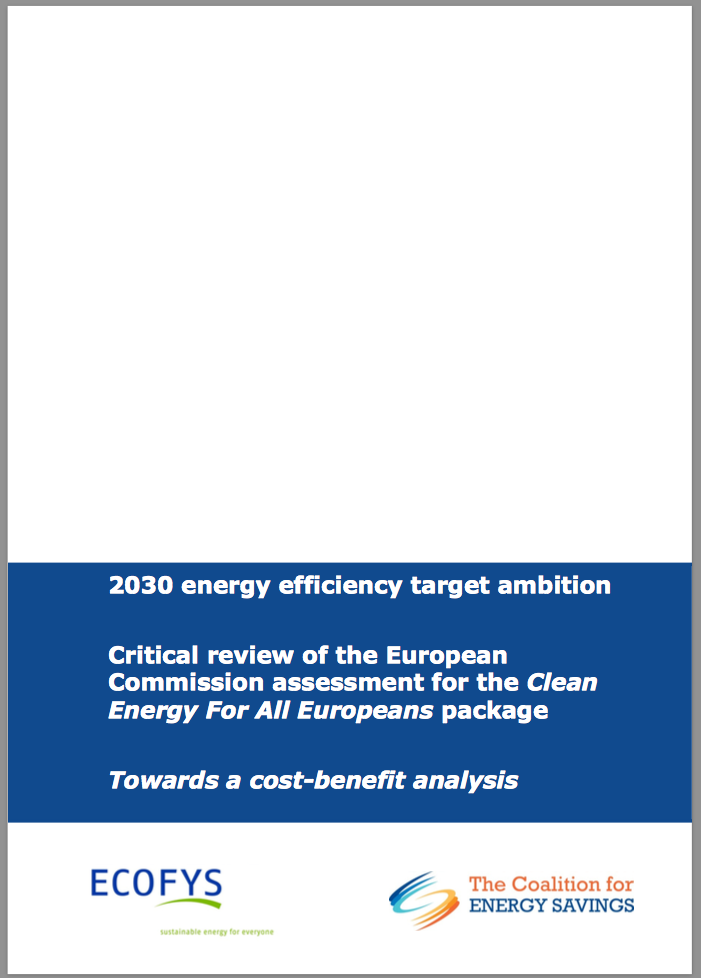 Uit een bericht van Ecofys
Uit een bericht van Ecofys
‘(…) In an updated study with and for The Coalition for Energy Savings, Ecofys has investigated the European Commission’s revised impact assessment of November 2016 regarding different 2030 target levels in the Energy Efficiency Directive. Renewing a previous study with the new data and findings, the team found that despite notable improvements in the Commission’s updated impact assessment, the applied methodology underestimates the cost-effectiveness of energy efficiency. While improvements include the presentation of multiple benefits, like security, employment and health, the assessment still sticks to a mere private perspective in analysing the cost. Through a private and short-term perspective, the assessment does not sufficiently take into account the role of public policy making in removing and reducing market barriers and changing energy market designs. Using an alternative method based on a societal cost-benefit analysis, the research shows that an energy efficiency target level of up to 40% could be cost-effective. (…)’
Uit een bericht van Ensoc
‘(…) De Europese Commissie onderschat de kosteneffectiviteit van energie-efficiëntie, zegt Ecofys. De Commissie weegt het effect van regelgeving zoals de Europese richtlijn voor energiebesparing onvoldoende mee. Ecofys blijft erop hameren: energie-efficiëntie kan sneller kosteneffectief zijn dan de Europese Commissie denkt. Na een eerdere evaluatie van een toetsingsonderzoek (impact assessment) over efficiënt energiegebruik uit 2014, heeft Ecofys ook de impact assessment van de Commissie die vorig jaar uitkwam onder de loep genomen. (…) Zou in zo’n kostenbatenanalyse de impact van beleid wel meegewogen worden, dan kan 35 en 40 procent energie-efficiëntie en -besparing rendabel zijn in de periode 2031-2050, zo becijfert Ecofys. (…) Dat zou volgens Ecofys wel de moeite waard zijn: de impact van investeringen in energie-efficiëntie bedraagt jaarlijks verschillende miljarden euro’s. Ook zijn er aanvullende voordelen van energiebesparing te verwachten, zoals een lagere gasimport, kostenbesparing bij huishoudens, minder CO2-uitstoot, extra banen en besparing op ziektekosten. (…)’
Bronnen
Ecofys, 30 januari 2017: Energy efficiency more cost-effective than estimated in the updated EC impact assessment
Ecofys en The Coalition for Energy Savings, rapport, 30 januari 2017: 2030 energy efficiency target ambition – Critical review of the European Commission assessment for the Clean Energy For All Europeans package – Towards a cost-benefit analysis (pdf, 14 pag.)
Europese Commissie, 30 november 2016: Commission Staff Working Document – Executive Summary of the Impact Assessement – Accompanying the document: Proposal for a Directive of the European Parliament and of the Council amending Directive 2012/27/EU on Energy Efficiency (pdf, 5 pag.)
Website The Coalition for Energy Savings
Foto: FluxEnergie/© Paul Tolenaar

